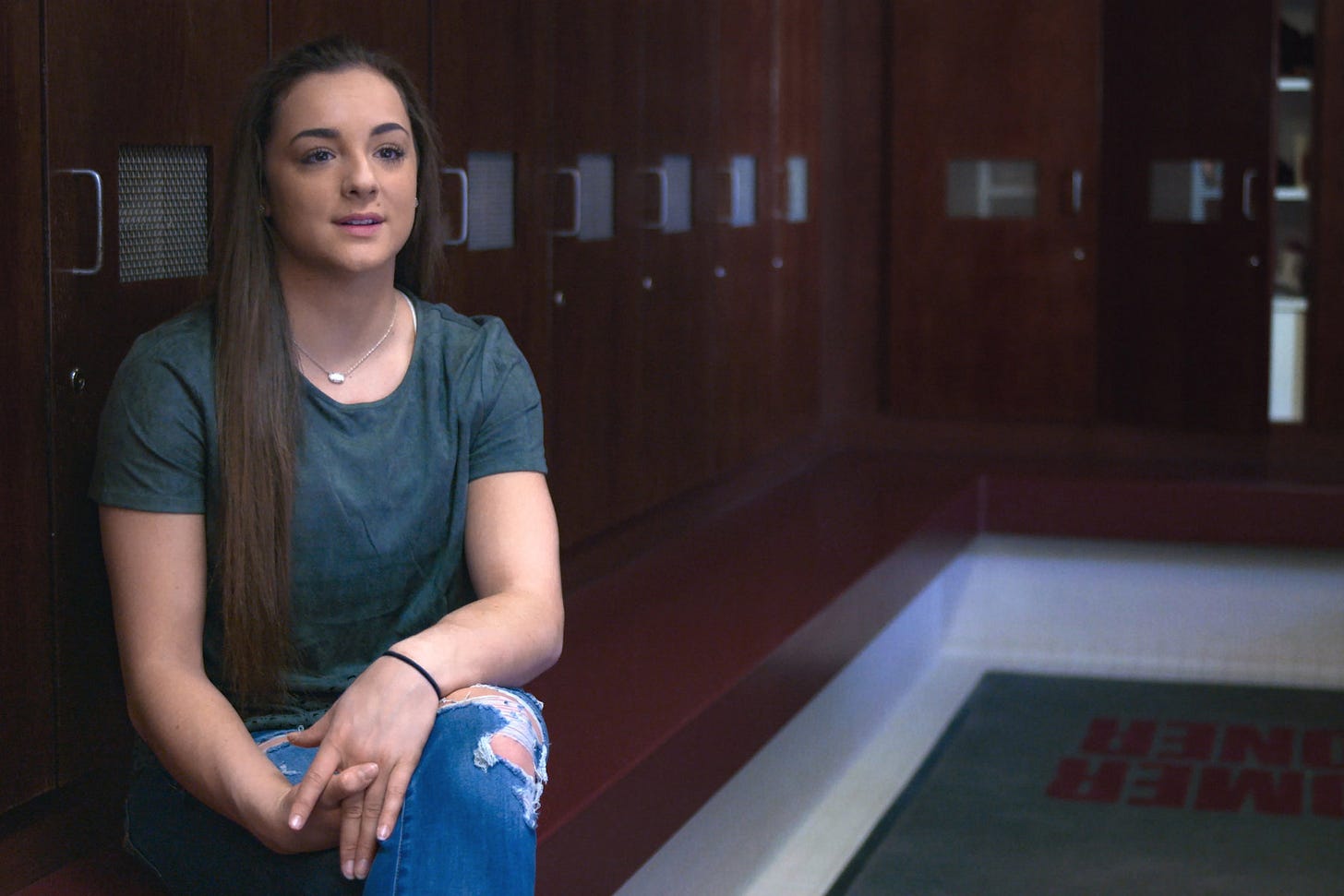Athlete A

"Athlete A" is in many ways the typical journalists-take-down-covered-up-crimes documentary.
So what makes this one so special, worthy of praise and given "must-see" status?
Nothing, really. "Athlete A" is a by-the-book, solidly crafted, expertly made, run-of-the-mill documentary about how over time, hundreds, perhaps thousands of young girls were molested by a man who abused them in the worst ways. When reported, a governing body looked away.
"Athlete A" is the documentary version of "Spotlight," substituting one hallowed, universally loved but crooked-as-hell institution (religon) for another (athletics--Olympic gymnastics, in this case), where a long history of sexual abuse toward young people was widely known, tolerated, even covered for, on countless occasions by those in charge.
And it took and accident for it to be uncovered. Kind of.
A report by the Indianapolis Star uncovered abuses by USA gymnastics, which has long been known as a bastion of mistreatment of young people in exchange for the glory of winning a small disc made of metal that signifies its holder, and their country of origin (most of the time) are best at a particular game. Sport. Competition. Whatever.
Journalists Mark Alesia, Tim Evans, Marisa Kwiatkowski, and Tim Evans, along with visual journalist Robert Scheer and editor Steve Berta, reported the story, having no idea their work was just starting. Soon they found themselves getting calls and emails from athletes implicating Dr. Larry Nasser, the longtime trainer for USA Gymnastics and Michigan State University, whom young women began accusing of molesting them.
Nasser's case is particularly devastating for multiple reasons, though some of them are alarmingly common: the abuse was widespread, with many of the more prominent, even famed gymnasts, were under his care, and he freely abused virtually all of them. Many of these names are familiar even to casual fans of sport, and many of them he victimized for several years.
Also, he was particularly devious in how he abused them: casually, under the guise of a "therapeutic procedure." He even created and released videos for some of them to cover himself.
And finally, and most devastatingly, and as is common for so many victims: those who told were themselves threatened, ostracized, or told they would ruin the reputation of a famous man. They were investigated and attacked.
"Athlete A" tells this story in as neutral a way as it can, which is to say through a journalistic lens. But like the 2015 Oscar-winning drama, the humanity behind the dispassion bleeds through, and we see victim after victim start to break down over their feelings of guilt and shame, not only of what would happen because they told, but because of what DID happen because they DIDN'T.
It's easy for a film like this, in a day and age where social justice is as big an issue as ever, to let victim fatigue set in and dismiss this injustice as the way of the world. But "Athlete A" doesn't blink as it shows how those in charge casually waved allegations aside. It does not let famed coaches Bela and Martha Karolyi off the hook either, showing them as the cruel vessels through which Nassar worked. The Karolyis were nororiously cruel and vicious to their athletes, and Nassar was their island of kindness, empathizing with them while he casually manually penetrated them.
"Athlete A" is certainly a must-see documentary. Filmmakers Bonni Cohen and Jon Shenk are seasoned documentarians, and take the approach of highlighting the investigative journalism as it builds the very human stories of those who were abused. Their approach is sensitive to those who want to and don't want to be outed, and they tell an all-too American story: one of needless tragedy performed for the pleasure of a powerful man.
And after all of this, the Boston Archdiocese case, the Penn State case, and the hundreds or thousands of other cases, finally, what does "Athlete A" say about us?
